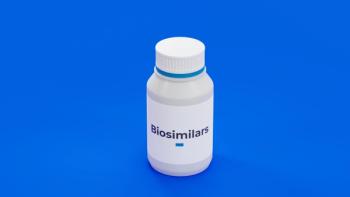
Venture capital investments in women's health are growing, with innovation looking beyond traditional avenues.

Venture capital investments in women's health are growing, with innovation looking beyond traditional avenues.

With 50 biosimilar products approved by the FDA, questions arise regarding biosimilar lifecycles and sustainability of the industry.

Sarah Butler discusses the important role pharmacists play in educating patients on these changes in medication prices.

Fran Gregory discusses the challenges posed by rising drug costs and emphasized that optimizing the use of biosimilars, which are entering the market at much lower prices than their reference products.

Pharmacists can help patients distinguish between food allergies and intolerances, as well as facilitate access to life-saving medications and preventative care.

Christie Smith discusses a medically integrated dispensing model that aligns the goals of patients, physicians, and pharmacists.

At Asembia's AXS24 Summit, a clinician discusses the pathophysiology and classification of pulmonary arterial hypertension.

HSSPs improve medication adherence and reduce total health care costs by directly managing medications for complex chronic conditions like cancer, diabetes, COPD and CHF.

Tasmina Hydery, PharmD, BCGP, discusses how stakeholders can work together to generate and share real-world evidence on biosimilar effectiveness and switching in order to drive adoption and realize cost savings potential.

Fran Gregory, PharmD, MBA, vice president of Emerging Therapies at Cardinal Health, discussed the role biosimilars are playing in the pharmaceutical market as well as in patient access.

With a growing expectation for individualized and personalized care, medically integrated pharmacies have a great opportunity to support patients and the care team.

Josh Marsh, vice president and general manager of Sonexus Access and Patient Support at Cardinal Health, discussed how patient assistance programs are leveraging technology.

Importantly, Sullivan said data show that adverse events in the home infusion environment are no higher than in any other setting.

Approximately 43 total specialty drugs come to the market each year, on average.

PSG speakers present findings of the report at AXS23 and explain some of the notable results.

Gregory also discussed the differences between specialty pharmacy distribution and physician’s office distribution, and the benefits of each for patients.

In addition to streamlining and strengthening patient care, Dave said working in a medically integrated pharmacy can be incredibly rewarding for pharmacists.

In addition to 2 FDA-approved options, several clinical trials are investigating other potential treatments for immunoglobulin A nephropathy.

In addition to offering convenience and ease of access, Sullivan said allowing patients to receive care at home empowers them and improves quality of life.

Biosimilars are also expanding rapidly, offering new opportunities for payers, patients, and providers.

Panelists at AXS23 conference agree that the patient’s voice is the most critical, whether it is related to drug manufacturing, delivery, or marketing.

Pharmacists will play a growing role in the use of biosimilars and guiding patients through the switching process.

Although these programs are not the entire solution to rising pharmacy costs, Marsh said they are an important part of solving the problem.

The COVID-19 pandemic revealed some of the major gaps in trust in the United States, but Johnson said pharmacists are key to improving it.

The law directs federal spending toward funding the internal revenue service, improving taxpayer compliance, lowering health care needs, and reducing carbon emissions.

Naveen Mansukhani, BPharm, discussed skyrocketing prices for specialty drugs and what is driving those increases.

Fran Gregory, PharmD, MBA, vice president of Emerging Therapies at Cardinal Health, discussed the biosimilars landscape and where biosimilars fall in the process of pharmacy and medical benefit adoption.

Balancing clinicians’ priorities with the needs of patients and their families is crucial to ensure access and adherence to medications.

Pharmacists play key roles in navigating prior authorizations and other limits on utilization, as well as educating and listening to patients and caregivers.

Session at the 2023 Asembia Summit notes that pharmacists play a particularly important role in the large multidisciplinary care team needed for Rett syndrome management.